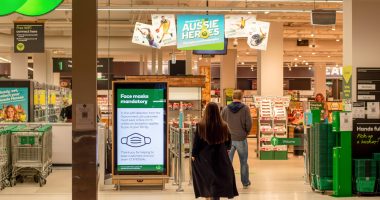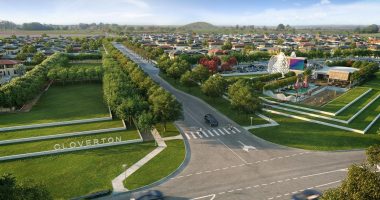- Lower building costs and demographic movements might make regional Australia an untapped market for build-to-rent (BTR) developers
- Lower land cost and densities may help to reduce overall construction cost and mitigate some of the issues city developers face, according to a CBRE report
- The majority of BTR stock and development of BTR units are concentrated in Melbourne and Sydney
- Successful roll-out of similar products in the US and the UK might bode well for a regional BTR market
Lower building costs and demographic movements might make regional Australia an untapped market for build-to-rent (BTR) developers.
This is one of the findings of a new CBRE Research report, Build to Rent in the Regions, which looks at Australia and New Zealand’s still-developing BTR markets.
While BTR developers have focused their efforts mostly on Australia’s bigger capital city markets, the paper shows worldwide instances of BTR’s success in remote locations driven by customer demand for higher-quality rental housing.
CBRE’s Australian head of residential research Craig Godber noted that these global precedents, coupled with feasibility benefits and demand for better quality rental product both inside and outside of Australia’s capital cities, could help spur regional BTR projects.
“At this early stage of the sector’s evolution in Australia, it can be difficult to make a highly amenitised city centre BTR project stack up,” he said.
“In the regions, lower land costs and lower densities help to reduce overall construction cost and can mitigate some of the issues that city centre developers are facing. The success of regional projects in the US and the UK, where BTR-style product is well established, was another consideration – highlighting the potential for build-to-rent in markets with a high enough proportion of renter households.”
The majority of BTR development occurred in Melbourne’s inner city and Sydney’s population boom corridors, with Brisbane’s inner-city also being considered.
The development pipeline was also heavily concentrated in the denser capital cities.
“The city centres are where the housing need is the most acute, renter population growth the strongest and rents the highest,” Mr Godber said.
“However, developers were facing a series of challenges, including high land values, a lack of suitable land and strong competition for prime sites.”
When it comes to international trends, CBRE’s analysis focused on regional markets in the US, where BTR is referred to as multifamily housing.
While urbanised cities like New York have a high volume of stock, smaller markerts are forming in the regional areas, according to the report.
The report also stated that out of the 180,000 BTR units either complete, under construction or in the planning phase in UK, 99,000 are outside of London, some of which are in less populous areas like Bristol and Norwich.
Mr Godber said in Australia there has been a notable rise in the movement of people away from the capital cities.
September quarter 2020 data showing the greatest movement of residents from capital cities to regional locations on record, according to Mr Godber.
The December quarter saw this trend maintained, Mr Godber said, noting that September was the third successive quarter of record net movement to regional Australia.
The types of renter households in different locations will be another factor, determining which regional markets will be more suited to BTR product.
“Build-to-rent typically carries a price premium, due to the associated services and amenity,” Mr Godber said.
“Even though development costs will be cheaper in regional areas, BTR housing will be more expensive than existing rental stock. This means that occupier households would typically require more than one income source.”







